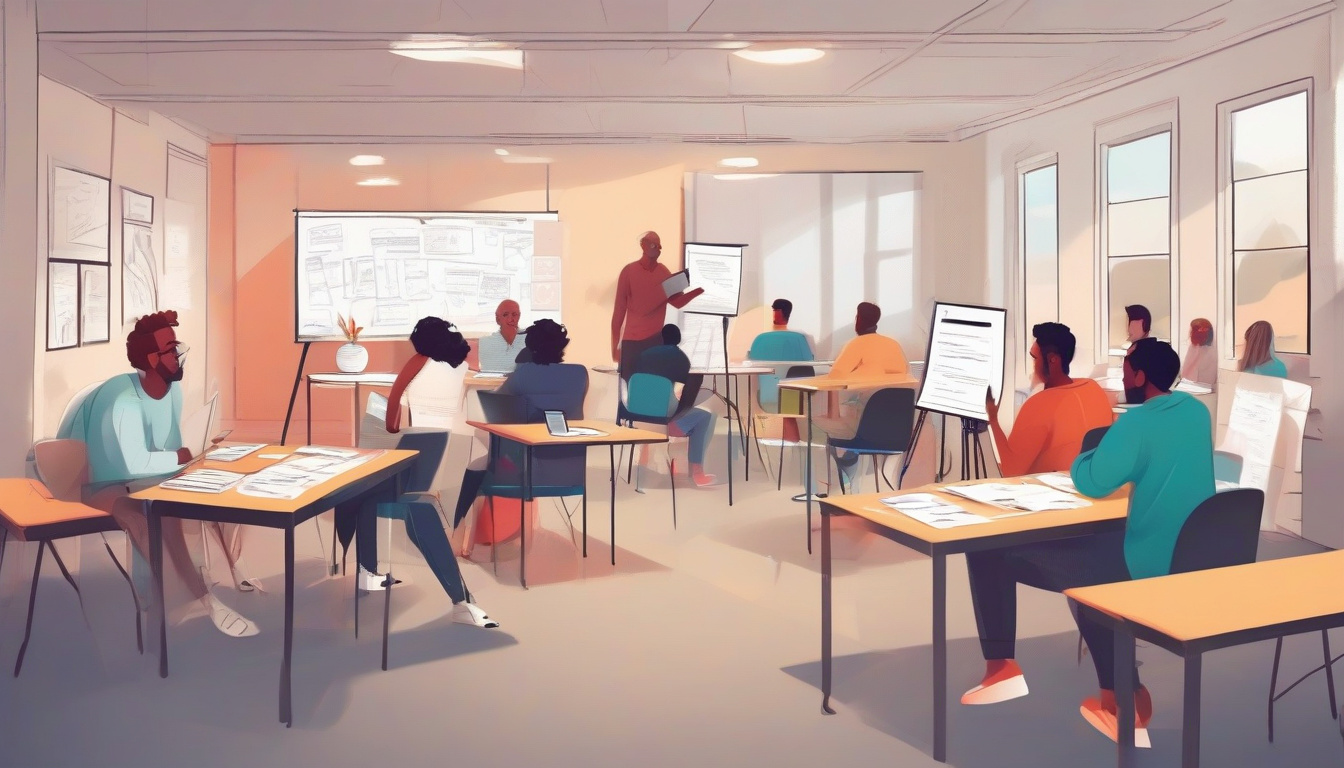
If you have a passion for storytelling and aspire to write compelling screenplays, participating in screenwriting workshops can be a transformative step in your creative journey. Screenwriting workshops offer aspiring and professional writers alike the opportunity to refine their craft, receive expert feedback, and immerse themselves in a collaborative environment that fuels creativity. Whether you are a beginner or an experienced screenwriter, these workshops provide invaluable tools to unlock your storytelling potential and bring your scripts to life.
Why Choose Screenwriting Workshops?
Screenwriting is an intricate art form that requires mastering structure, character development, dialogue, and pacing—all crucial components of a successful screenplay. While self-study and practice are important, the guidance you receive from industry professionals and fellow writers in a workshop setting elevates your skills much faster.
Key benefits of screenwriting workshops include:
- Expert Guidance: Access to experienced screenwriters, script consultants, or filmmakers who provide personalized, constructive critiques.
- Collaborative Learning: Opportunities to share work and exchange feedback with peers who share your passion.
- Industry Insight: Exposure to writing trends, pitching techniques, and insider knowledge about production and distribution.
- Accountability: Regular deadlines and workshop schedules keep your writing process active and focused.
- Networking: Building relationships with mentors and fellow screenwriters that can lead to future collaborations or career opportunities.
What to Expect in a Screenwriting Workshop
Workshops vary significantly in format and duration, but most include some common elements:
Structured Lessons on Screenwriting Fundamentals
From understanding the three-act structure to creating compelling characters, workshops typically cover the essential techniques that form the backbone of successful screenplays.
Script Analysis and Feedback
Participants share portions of their scripts and receive detailed critiques, focusing on elements like story clarity, character motivation, dialogue naturalness, and pacing.
Writing Exercises and Assignments
To spark creativity and build skills, workshops often incorporate writing prompts or scene construction exercises designed to develop specific areas of your craft.

Pitching Practice
Many workshops teach how to pitch your story effectively to producers or studios, an essential skill for success in the industry.
Portfolio Development
Some programs guide writers through completing a polished script or developing multiple projects for a professional portfolio.
Types of Screenwriting Workshops
When exploring options for screenwriting workshops, consider your goals, experience level, and preferred learning style. The main types include:
In-Person Workshops
Held at film schools, writing centers, or creative hubs, in-person workshops offer face-to-face interaction, live discussions, and networking opportunities. This format benefits those who thrive on immediate feedback and dynamic group settings.
Online Workshops
Advantageous for flexibility and accessibility, online workshops are delivered through video conferencing, forums, or learning platforms, allowing writers worldwide to participate. They often include recorded lessons, live Q&A sessions, and digital script sharing.
Intensive Bootcamps
These fast-paced workshops last anywhere from a weekend to a few weeks and focus on rapid skill-building and script completion. Bootcamps are ideal if you want an immersive experience with focused attention.
Specialty Workshops
Some workshops focus on niche genres (e.g., horror, comedy, drama) or specific formats like TV writing or short films, tailoring their curriculum to meet specialized goals.
How to Choose the Right Screenwriting Workshop
Selecting the best workshop plays a crucial role in your development. Here are factors to consider:
- Curriculum Focus: Look for workshops that align with your needs, whether it’s learning fundamentals, polishing a script, or pitching.
- Instructor Credentials: Research the experience and background of the facilitators. Industry professionals or published screenwriters typically offer the most valuable insights.
- Class Size: Smaller classes usually mean more personalized feedback.
- Reviews and Testimonials: Feedback from previous participants can hint at the quality and value of the program.
- Format and Schedule: Choose a format that fits your lifestyle and learning preferences.
- Cost: Balance your budget with the quality of instruction offered.
Essential Tips to Make the Most of Your Screenwriting Workshop
To maximize your workshop experience, keep these best practices in mind:
- Come Prepared: Have a rough draft or outline ready, and be open to critiques.
- Engage Actively: Participate in discussions and provide feedback to others.
- Apply Feedback Quickly: Use the insights gained to revise your work promptly.
- Network: Connect with instructors and peers beyond the workshop sessions.
- Maintain Momentum: Treat the end of the workshop as a starting point rather than a finish line.
Frequently Asked Questions About Screenwriting Workshops
Q1: Can beginners benefit from screenwriting workshops, or are they only for experienced writers?
A1: Screenwriting workshops are designed for all skill levels. Beginners gain foundational knowledge and support, while experienced writers receive advanced techniques and professional feedback tailored to their projects.
Q2: How long do screenwriting workshops typically last?
A2: Workshop durations vary widely—from short weekend intensives to semester-long classes. Many programs last between 6 to 12 weeks with weekly sessions, providing structured time to develop your script.
Q3: Do screenwriting workshops guarantee a script will be produced?
A3: While workshops provide tools and feedback to improve your screenplay, they do not guarantee production. However, they increase your chances by enhancing script quality and offering networking opportunities that might lead to industry connections.
Final Thoughts: Invest in Your Storytelling Journey Today
Enrolling in a screenwriting workshop is more than just a learning experience; it’s an investment in your storytelling future. With expert guidance, clear structure, and peer support, these workshops empower you to develop authentic, engaging scripts that stand out in the competitive world of film and television. Don’t let your story remain untold—seek out a screenwriting workshop that fits your goals and start unlocking your full creative potential.
For those serious about career advancement, organizations like the Sundance Institute offer renowned programs that inspire and elevate emerging screenwriters. Seize the opportunity to learn from industry leaders, engage with passionate peers, and refine your craft.
Take the next step today: find a screenwriting workshop near you or online and transform your storytelling dreams into screenplays that captivate audiences worldwide.






